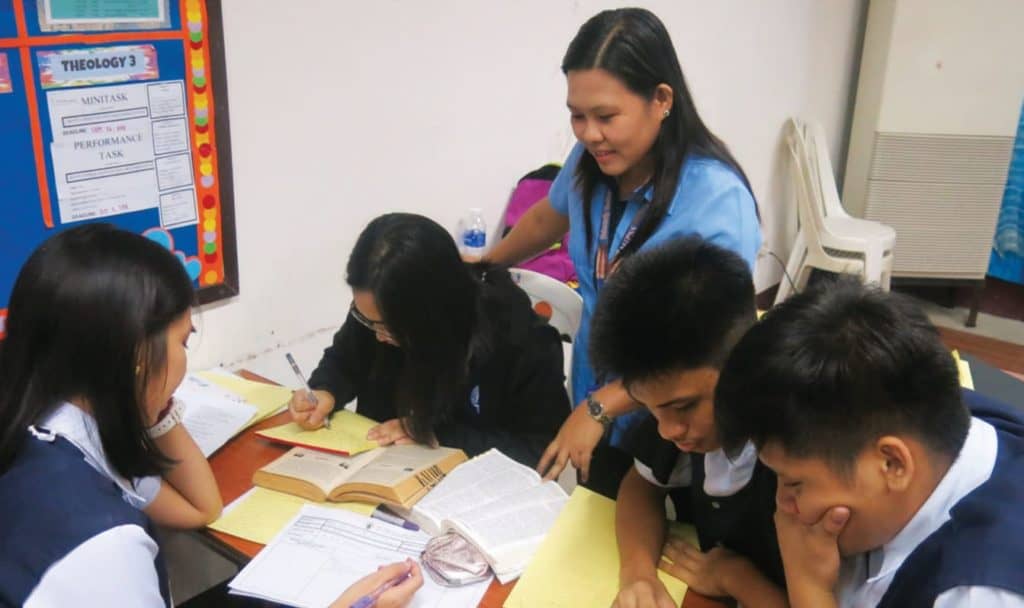Looking at the world that is constantly challenging the set of norms of institutions, communities and even more so, the life of every individual, it becomes more difficult to find key explanations for certain issues. The fast-changing pace of everything that surrounds us requires an alert and discerning mind, able to correctly interpret the signs of the times in order to offer solutions directed toward the common good. The favorable work by educational experts can offer a timely response to the uncaring situation that grips society today.
Every educational act aims to build relationships. A balanced and healthy educational process fosters healthy teacher-to-student and student-to-student relationships. This is not only an effective way to help prevent academic failure, or quarrelsome behavior, but it can also lead to harmonious social relationships.
“The student-teacher relationship is a cornerstone in a student’s social maturation process.” This was affirmed by Dr. Ricardo Gonzalez in his article The Impact and Importance of Positive Student-Teacher Relationship. Gonzalez observed that “cultivating a positive rapport with a non-parental authority figure allows students to define themselves, adapt to their environment and grow their emotional and social intelligence.”
 And this becomes possible if in the whole process of teaching and learning an attitude of trust and openness is created. Forming a safe environment will make it possible for learners to bring out their best, whatever physical condition they may have. In fact, according to Peter Riddle, founder of ELTC (Empowered Learning Transformation Centers), “Positive relationships with teachers become game changers for kids… The common thread with (all of) these people is that emotional intelligence increases when individuals are challenged to perform and function at their very best in the midst of a safe, structured environment.”
And this becomes possible if in the whole process of teaching and learning an attitude of trust and openness is created. Forming a safe environment will make it possible for learners to bring out their best, whatever physical condition they may have. In fact, according to Peter Riddle, founder of ELTC (Empowered Learning Transformation Centers), “Positive relationships with teachers become game changers for kids… The common thread with (all of) these people is that emotional intelligence increases when individuals are challenged to perform and function at their very best in the midst of a safe, structured environment.”
For a student who experiences certain struggles in coping with the varying demands of schooling, having a trusting relationship with their teachers becomes a sure path to their success.
It is therefore essential that students are introduced to a culture rooted in relationships – a culture that leads toward maturity. With this same thought, Pope Benedict XVI also said that “the most profound identity of the school – and therefore, the whole educational process – is not exhausted in the mere transmission of useful data and information, but responds to the will to inculcate in students a love for the truth, which will lead them to that personal maturity with which they will have to exercise their role as protagonists in the social, economic and cultural development of the country.” (Address to the new Ambassador of Ecuador to the Holy See, October 22, 2010).
In the convention which was held in Rome last March, a whole new alternative approach was proposed for the education of the youth. An education that is built on “relationship, service to others, proposing a kind of knowledge which is not selective but relational, one which tends to include, to re-establish the basic principles for an “educational pact.” This pact has to allot the space needed by those responsible for all educational, social activity to build a harmonious relationship among family, school, educational and civil institutions and culture.” This is holistic education. And to educate means not splitting up education into pieces but aiming at an outcome, at the whole person.




